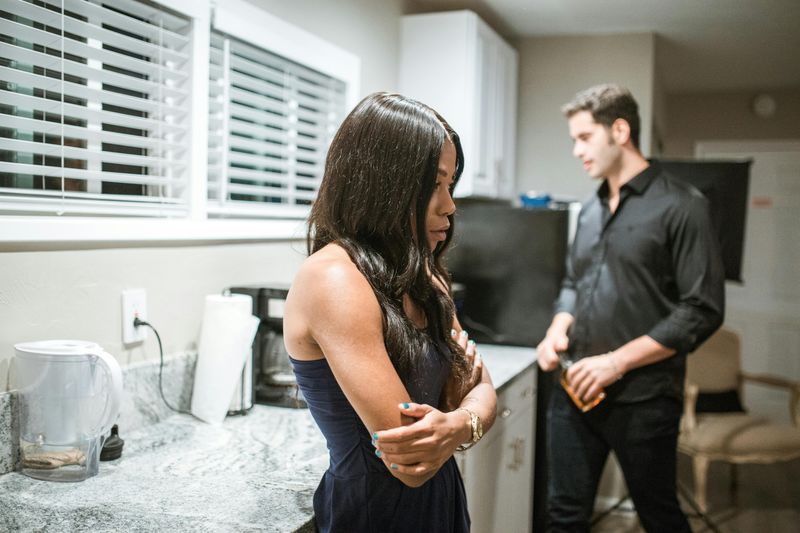8 Easy Ways to Avoid Misunderstandings in Your Relationship

We’ve all been there—saying one thing while our partner hears something completely different. Misunderstandings can turn small issues into big problems, creating unnecessary tension in relationships. The good news is that most communication breakdowns can be prevented with a few simple strategies. Here are eight practical ways to keep your conversations clear and your relationship strong.
1. Listen With Your Full Attention

Put down your phone, turn off the TV, and really focus when your partner speaks. Half-listening creates a perfect storm for misunderstandings because you miss important details and emotional cues.
Make eye contact and nod to show you’re engaged. Sometimes repeating back what you heard helps confirm you’ve got the message right: “So what you’re saying is…”
Remember that listening doesn’t mean planning your response while the other person talks. True listening means temporarily setting aside your thoughts to fully understand theirs.
2. Choose Words That Can’t Be Misinterpreted

Vague statements like “You never help around here” create defensive reactions rather than understanding. Instead, be specific about what you need: “I’d appreciate help with the dishes tonight.”
Avoid absolute terms such as “always” and “never” which rarely reflect reality. These exaggerations make your partner feel unfairly accused rather than understood.
When discussing sensitive topics, try the formula: “When [situation happens], I feel [emotion]” rather than launching accusations. This approach focuses on your experience without blaming your partner.
3. Watch Body Language Closely

Crossed arms, eye-rolling, or turning away often say more than words. Your partner might claim everything’s fine while their body screams the opposite. Learning to spot these signals helps prevent misunderstandings before they start.
Your own nonverbal cues matter too. A harsh tone or impatient sighs can completely change how your message is received, even if your words are perfectly reasonable.
When you notice a mismatch between someone’s words and body language, gently check in: “I notice you seem tense—is there something else on your mind?” This simple observation can open doors to honest conversation.
4. Acknowledge Feelings Before Problem-Solving

“I understand why you’d feel frustrated about that” works wonders before jumping to solutions. Validation doesn’t mean you agree with everything—it simply shows you recognize your partner’s emotions as legitimate.
Many relationship arguments escalate because people feel unheard, not because they disagree about facts. Taking a moment to acknowledge feelings creates a foundation of emotional safety.
Try phrases like “That makes sense to me” or “I can see why you’d feel that way” before moving forward. This small step prevents the common misunderstanding that you don’t care about your partner’s perspective.
5. Address Issues When You’re Both Calm

Trying to resolve misunderstandings during heightened emotions is like trying to put out a fire with gasoline. Wait until you’ve both cooled down before tackling sensitive topics.
Hunger, exhaustion, and stress are notorious communication saboteurs. Scheduling important conversations after a meal or good night’s sleep dramatically improves your chances of being understood.
Sometimes a simple “I’d like to talk about this later when we’re both feeling more centered” prevents a minor disagreement from escalating into a major fight. Setting a specific time to revisit the conversation shows you’re committed to resolution, not avoidance.
6. Ask Questions Instead of Making Assumptions

Our brains love filling in blanks with assumptions—usually negative ones. “You’re late because you don’t respect my time” might actually be “You’re late because there was unexpected traffic.”
Simple questions like “What did you mean when you said that?” or “Could you help me understand your perspective?” prevent countless misunderstandings. Curiosity creates clarity where assumptions create confusion.
Even when you’re certain about what your partner meant, checking your understanding shows respect and creates space for correction. This humble approach builds trust while preventing the frustration of feeling misinterpreted.
7. Express Gratitude for Communication Efforts

“I really appreciate you explaining that to me” encourages more open communication in the future. Thanking your partner for their patience, honesty, or willingness to work through misunderstandings reinforces positive communication patterns.
We all have different communication styles and comfort levels. Acknowledging your partner’s efforts—especially when communication doesn’t come naturally to them—builds goodwill for future conversations.
Small acknowledgments like “Thanks for bringing this up instead of letting it simmer” or “I appreciate your honesty” create a relationship where both people feel safe expressing themselves, dramatically reducing misunderstandings.
8. Establish Regular Check-in Conversations

Small misunderstandings grow in silence. Setting aside time each week for relationship check-ins prevents issues from festering. These conversations don’t need to be serious—they’re simply dedicated time to connect.
During these check-ins, take turns sharing what’s working well and what could use improvement. Questions like “Is there anything I’ve done recently that felt hurtful?” create space for clearing up misunderstandings before they become relationship problems.
Many couples find that a weekly walk or coffee date dedicated to open communication prevents the buildup of small misunderstandings that would otherwise emerge during stressful times.

Comments
Loading…